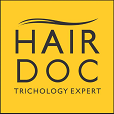
Natural Remedies for Hair Loss: Fact vs. Fiction
Hair loss is a common concern that affects people of all ages and genders. It can be caused by a variety of factors, including genetics, hormones, medications, and medical conditions. While there are many natural remedies and home remedies touted as solutions for hair loss, it’s important to separate fact from fiction to make informed choices about your hair care. In this article, we’ll explore some popular natural remedies and their effectiveness in combating hair loss.
**1. Massage and Scalp Stimulation:
- Fact: Scalp massage can improve blood circulation to the hair follicles and may promote hair growth. It’s a safe and relaxing practice that can complement other treatments.
- Fiction: Scalp massage alone may not be sufficient to reverse significant hair loss caused by genetic factors or medical conditions.
**2. Aloe Vera:
- Fact: Aloe vera has soothing properties and can help maintain a healthy scalp. Some studies suggest it may promote hair growth and reduce inflammation.
- Fiction: Aloe vera is not a standalone solution for severe hair loss, but it can be a beneficial addition to your hair care routine.
**3. Essential Oils:
- Fact: Certain essential oils, such as lavender, rosemary, and peppermint, have been studied for their potential to improve hair health and stimulate growth.
- Fiction: Essential oils should be used with caution, as they can be potent and may cause skin irritation if not properly diluted. They are not guaranteed to work for everyone.
**4. Onion Juice:
- Fact: Some research suggests that onion juice may promote hair regrowth due to its sulfur content, which can improve hair strength and thickness.
- Fiction: Onion juice may have a strong odor and can be irritating to the scalp for some individuals.
**5. Nutritional Supplements:
- Fact: Nutritional deficiencies can contribute to hair loss. Supplements like biotin, iron, and omega-3 fatty acids may help if you have deficiencies.
- Fiction: Taking excessive doses of supplements without a deficiency may not provide any additional benefit and can have adverse effects.
**6. Diet and Lifestyle Changes:
- Fact: A well-balanced diet rich in vitamins, minerals, and protein is essential for healthy hair growth. Reducing stress and getting regular exercise can also positively impact hair health.
- Fiction: Diet alone cannot reverse hair loss caused by genetic factors or hormonal imbalances.
**7. Herbal Remedies:
- Fact: Some herbs like saw palmetto and ginseng have shown potential in addressing hair loss by blocking certain hormones.
- Fiction: Herbal remedies should be used under the guidance of a healthcare professional, as they can interact with medications and have side effects.
**8. Avoiding Tight Hairstyles and Heat Styling:
- Fact: Wearing tight hairstyles or using heat styling tools excessively can contribute to hair damage and breakage.
- Fiction: While avoiding damaging hair practices is important, it may not address the underlying causes of hair loss.
In conclusion, natural remedies can play a supportive role in maintaining hair health and potentially aiding in hair regrowth for some individuals. However, it’s crucial to have realistic expectations and consult with a healthcare professional or dermatologist if you’re experiencing significant hair loss. They can help determine the underlying cause and recommend appropriate treatments, which may include medications or medical procedures. Remember that what works for one person may not work for another, so it’s essential to tailor your approach to your specific needs and conditions.
Regards,
Dr. Satish Vaishnav
Hair Doc, Trichology Expert, Hair Clinic
Thane, Pune, Chhatrapati Sambhajinagar, Pimpri-Chinchwad




